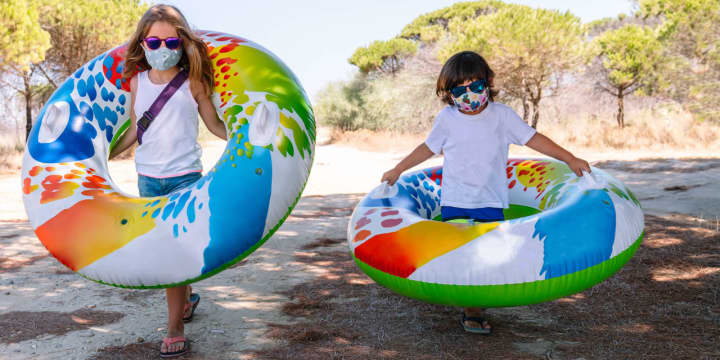Recent AAP guidance supports children participating in these summer activities as they provide multiple benefits to children. Studies have shown that camps with proper safety measures in place have been successful at limiting COVID-19 spread, so it is important for parents, children, and caregivers to follow the recommended guidelines.
Considerations before starting camp:
- General Health – Discuss with your pediatrician whether it is safe for your child to attend camp based on his/her/their medical history.
- Vaccination – Ensure all vaccinations are up to date. The Pfizer vaccine against COVID-19 has been approved for children 12 years and older and is recommended by the AAP.
- Testing – CDC guidelines can help determine if a child needs a COVID-19 test before starting camp. Antibody tests should not be used to decide whether a child should participate in activities.
Even if a camper has a negative COVID-19 test, the following practices are important to decrease the risk of spreading or contracting COVID-19:
- Hand Hygiene – Hand washing often and effectively (for at least 20 seconds with soap and water) is important for limiting the spread of many contagious diseases.
- Physical Distancing and Face Masks – Children who have not been vaccinated against COVID-19 should wear face masks whenever possible, especially indoors and if they are unable to maintain an adequate physical distance from others. This becomes especially important during activities where there is increased risk of spread, such as singing, cheering, or shouting. Younger children may need to be frequently reminded and encouraged. If all staff members and campers are vaccinated, they may participate in activities without masking and physical distancing (as camp rules allow). Masking and distancing should continue for all people with weakened immune systems.
- Smaller Groups – Campers should be grouped together into cohorts for the camp session and have minimal mixing with other campers.
- Shared Equipment – Camps should limit shared equipment and ensure frequent cleaning and disinfection of shared surfaces.
We hope you have a great summer and always remember sun and water safety too!


